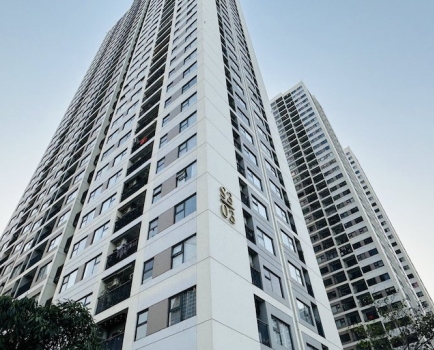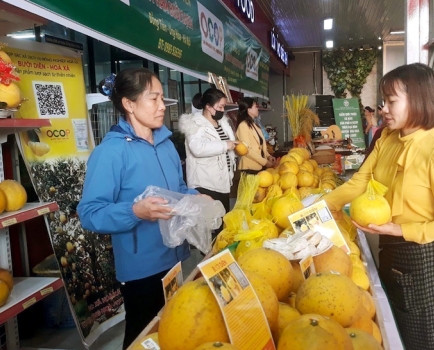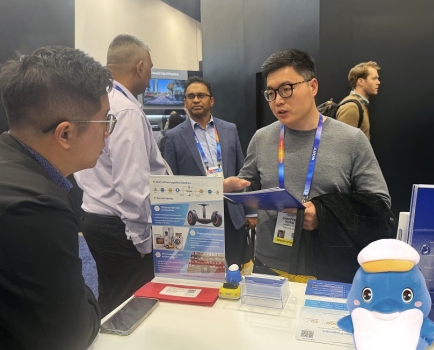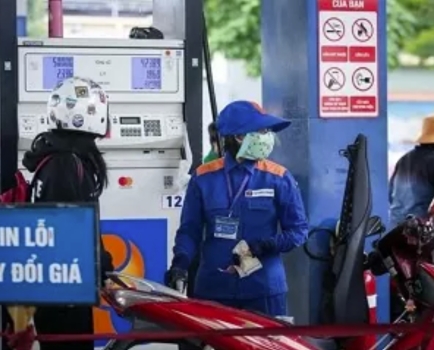Recommendations on 8 amendments and supplements to Decree 38/2012 / ND-CP dated 25 April 2012 (hereinafter referred to as Decree 38) detailing the implementation of some articles of the Law on Food Safety products (Food Safety) included:
Tue, 21 Nov 2017 13:46:00 | Print | Email Share:
Name of recommendations: Recommendations on 8 amendments and supplements to Decree 38/2012 / ND-CP dated 25 April 2012 (hereinafter referred to as Decree 38) detailing the implementation of some articles of the Law on Food Safety products (Food Safety) included:
Status: Has not been responded
Recommended by units: The Vietnam Association of Seafood Exporters and Producers (VASEP)
Official letter: No 1680/PTM - VP, dated: 2017-07-14
Recommended contents:
- The recommendation: To abolish the regulation on the issuance of the certificate of conformity of food safety and changed to standard conformity certification in accordance with the Law on Standards and Technical Regulations at the organizations designated by the agencies. There were 37 organizations nominated nationwide: Ministry of Health: 13 organizations, Ministry of Agriculture and Rural Development: 24 organizations. The past four years have shown the inadequacies of the nature of a "sub - license".
The reasons: This procedure has created a big barrier to the business production and has not helped to improve the food safety:
The procedure for issuing a certificate of declaration of conformity has processes and procedures as a sub-license that have made many many difficulties for the business.
+ Costly Time: Decree 38 has stipulated that the response time is 15 working days with normal food; and 30 working days (= 1.5 months) with food supplement micronutrients since filing full dossiers, but in fact after the deadline, and often receive written requests for additional information for many times, each time taking more time for review and be recalculated from the beginning. It may take up to 3-5 months for a license to take over, lost many business opportunities of the business.
+ Be complicated, it is very difficult for the business for self-implementation if not hire through private services: Because there is no clear criteria for review, the investigators arbitrarily inspected businesses to add all kinds of papers that not included in the regulations and adjust the standards from the personal point of view that have made the business does not know the direction to go if not hire private services, except for some large businesses and foreign businesses which have specialized staff for registration.
- How many raw materials, auxiliary materials and packing in each domestic product, businesses have to take those numbers of declared licenses, may be up to dozens of sub licenses.
- Not only taking time for a registration of the circulation, every 3-5 years, businesses have to submit the confirmation of re-declaration, including products have nothing to change and always get good quality.
- This procedure has not got any significant benefits in improving food safety (as in the Confirmation Statement, the licensing agency claims no responsibility for product quality: businesses must be fully responsible for their product quality). For the foodstuffs, businesses have applied advanced quality control measures such as HACCP, GMP, ISO (quality control throughout the process) and imported food (because of the quality control of the state when imported), this procedure was almost completely meaningless.
- The recommendation: While the Law on Food Safety has not been amended, based on the viewpoint of risk management in Resolution 19/2017, it is proposed that to remove (not need) to implement declaration of conformity with processed products. This package is available to all countries that Vietnam currently has signed FTAs, has already been signed and / or have obtained the certification of the Certificate (Phytosanitary Certificate) or (Health Certificate). At least, we should apply to countries with very high levels of food safety such as EU, USA, Australia, New Zealand, Canada and Japan. In this way, the company or importer will be responsible for informing the concerned State Agency and submitting the attached import and sub-labeling documents to identify the products and take responsibility for the contents of labeling. This is the way EU countries are managing similar food imported from Vietnam.
2.1. To simplify procedures for consideration of issuance of technical regulation certificates in accordance with the Law on Quality and Control & Technical Regulation:
- This is the nature of the notification procedure rather than the registration procedure as the implementation of the past time. (At present, the state agencies which are responsible for decalcification of technical regulation of other sectors. The Ministry of Science and Technology, the Ministry of Construction, ETC... are implementing this form, and do it very simple, fast, not complicated and difficult as Ministry of Health.
- Dossiers must comply with the provisions of the Qqualification & Control & Technical Regulation on items and forms, which must be abolished.
- The recommendation: The time for issuance of notices of declaration is 3 working days.
2.2. To specify: "In case of refusal, it must reply in writing, clearly stating the reasons and the legal basis of that reason" to avoid harassment of officials to businesses when making additional requirements that be unreasonable.
- Specifed measures to deal with officials who deliberately make outlaws (because they are strictly prohibited by Decree 63/2010 / ND-CP).
- The number of additional requests is 1, so that businesses only have to add one time.
2.3. To simplify procedures for import / registration of raw materials, additives, food processing auxiliaries, imported packaging for internal production of businesses, not be sold to the market as follows:
It is not required to announce regulation conformity / technical regulation certification of raw materials, additives, food processing aids, imported packing for internal production of businesses that not be sold on the market. The application for import license only needs:
• Names of raw materials with international code (if any).
• Names and address of the suppliers
• Raw Material Standards (Manufacturers)
• Commitments of businesses are only used internally in production establishments, be responsible for quality and meet the regulations on food safety.
- The recommendation: Amendment of Clause 5, Article 1 of the Draft, supplementing Clause 5a to Article 8 of Decree 38/2012, specifically as follows: "In case of changing only the details in products information sheet for the the label, specifications, packing materials, expiry dates, quality indicators, optional labeling contents, addresses of entities or places of production, names of entities (in case of change of the business registration certificate), change of importers or traders who are responsible for their products (with the consent of the production establishment), entities were permitted to submit the written request for supplementation, enclosed with the certification of the changed or supplemented contents of the entities who are responsible for products for continuous using the paper receipt or a certificate has been issued or reissued. After 7 (seven) working days, if the receiving agency has no written opinion, entities may change it. "
The Reasons: In the practice of production and business, businesses often have to make small changes to the product without affecting the quality such as due dates, packaging materials, or change importers or traders who are responsible for their products (with consents of production units) ... but it must still be re-declared, it is very losing time and costly, causes a huge obstacle for production and business activities and does not help for improvement of the food safety.
- Circular 19/2012-TT / BYT (hereinafter referred to as Circular 19) has allowed minor changes to be allowed to apply, but there are still small changes that have not yet been permitted.
- Clause 5a, Article 8 of the amended draft Decree 38 only allows for changing packing specifications, not for other small changes.
4. The recommendation: To cancel the request to submit samples for periodic testing, and revise as follows:
- Entities shall have to ensure that products, goods, services, processes and environment that comply with the announced technical regulations and standards, and draw up appropriate quality control plans.
- Imported products that have been tested by the manufacturer and the government in Vietnam for imported consignments are allowed to use these results in the quality control plan.
The reasons:
- Regarding Vietnam's legal provisions: This requirement is contrary to the Law on Quality and Control & Technical Regulation. To define the responsibility of examining and inspecting activities in the field of technical regulation; The law enforcement agencies are responsible for handling violations in accordance with the law. Entities shall have to ensure that products, goods, services, processes and environment comply with the declared technical regulations and standards. Entities are not responsible for sending samples for testing, which must belong to state management agencies
- Regarding international practices: This requirement is contrary to international practice because no country requires businesses to send their samples periodically, but it only requires businesses to build their own quality control system. Apply advanced quality management system (GMP, HACCP, ISO 22000).
- The recommendation: It is proposed to abolish regulations on consular legalization of licenses and certificates. Because, according to Decree 38/2012 / ND-CP and Circular 19/2012 / TT-BYT, many documents that are stipulated in the Decree require notarization or consular legalization for the certificate of proof received by a competent authority in a foreign country, or a test card recognized by an organization in the world which has made a decision to recognize each other and Vietnam is a member of that organization. This inadequacy is causing ineffectiveness and waste to businesses and governments, prolonging the time of publication, and also contravenes the signed Trade Agreement (TF / WTO, EVFTA, TPP).
- The recommendation: To add item e) in Item 9, Article 1 of the amended draft of Clause 1, Article 12 of Decree 38: Food intermediary and food intermediary but not carrying out any related activities. to produce, preserve, transport, display food.
The Reasons: An unreasonable provision of Decree 38 is food intermediary trade but does not carry out any activities related to the production, preservation, transport or display of foodstuffs. Although not having production and / or business locations, they are not directly engaged in any activities related to food production and trading but must still apply for certificates for eligibility in the food safety.
- The recommendation on goods inspection when import
- Inspection of each batch of imported goods: According to the current regulations, each shipment of imported goods must be inspected, in which, for animal products or containing animal products, two types of inspection are quarantine veterinary (Ministry of Agriculture and Rural Development) and food safety control. This regulation is too complicated, unnecessarily expensive for businesses. While the Law on Food safety and hygiene has not amended, based on the requirements of Resolution 19 on the application of risk management, preferential business regime in the management and inspection of imported goods, it is proposed to add Clause 2 (the following cases shall be exempt from the state inspection of the food safety for imported food.) Article 14 of Decree No. 38 has contents as follows:)
- G) Exemption from inspection for products that satisfy the following criteria: The declaration has been officially announced by a person with a history of complying with the law on food safety and hygiene, familiar goods, at the time of procedure. No signs, information on risk of food safety. The inspection is carried out at the stage of circulation.
- h) Exemption from inspection or non-inspection at the customs clearance stage, inspection at the stage of circulation for deep-processed products and goods, industrial packing
- 3. - It is proposed to deregulate 100% of goods shipments, instead of strictly applying the principle of risk management under NQ19 and international practices to check according to the percentage based on the history of ensuring food safety, certificates / quarantine with shipments, origin ...
- Clarify Clause 3, Article 14 of Decree No. 38: Imported goods shipments must be inspected only once by a single managing ministry. If there is one product in the whole shipment that is fresh, the whole shipment only bear inspection of the State by the Ministry of Agricultural And Rural Development
- To specify the granting certification of reduction inspection: Within 3 days, the management agency shall have to certify, if not, the reasons and the legal basses of such reason must be clearly stated. If the agency does not reply within 3 days, the customs office shall approve the businesses to be exempt from the inspection.
The reason: According to Decree 38, each batch of food when import must be checked quality. For animal products or animal products are subject to additional quarantine (Ministry of Agriculture and Rural Development under Circular No. 25/2016 / TT-BNNPTNT dated 30 June 2016), unnecessarily expensive although Clause 3, Article 14 of Decree 38 has stipulated that the products are under the jurisdiction of two or more ministries, the Ministry of Health inspects the quality. In particular, if there is fresh food, the Ministry of Agriculture and Rural Development is responsible for checking quality.
- Circular 52/2015 has stipulated the inspection reduced only 2 consecutive batches of quality and will answer after 3 days, but the actual procedure for businesses to check the reduction is not easy, sometimes, it takes months to be confirmed.
8. The recommendation: Add to Article 15 of the regulations on inspection regime at source with the following contents: "Applying the inspection regime at the source, at the root (checking the stages of farming and processing in production countries and import countries). This mode is applicable to businesses that need and pay for inspection.
Responded by units: The Ministry of Health
Official letter: No: 3933/BYT-ATTP, dated: 2017-10-11
Responded contents:
- 1. Among the 08 recommendations made by VASEP, 02 recommendations were exchanged and answered directly at the dialogue between representatives of relevant ministries such as the Ministry of Health, the Ministry of Agriculture and Rural Development, the Ministry of Industry and Trade, the Justice, the Planning and Investment, the Natural Resources and Environment, the Science and Technology and representatives from VASEP and seafood businesses on May 13 in Hanoi chaired by Deputy Prime Minister Mr. Vu Duc Dam (recommendation on abolishment of the certificate of conformity declaration with food safety regulations and recommendations related to administrative procedures).
In addition, the Ministry of Health (Department of Food Safety) has directly participated in the dialogue with VASEP, the Central Institute for Management Research, the Vietnam Chamber of Commerce and Industry in Hanoi and Ho Chi Minh City on these recommendations of VASEP also stated that the need to carry out "Pre-check" for food products as these goods directly affect human health, this method of management currently also is applying the case in the majority of countries in the ASEAN region. In these dialogues, the Ministry of Health also provided comments from the Ministry of Justice on the recommendations of VASEP, as follows:
- Clause 4 of Article 3, Clause 1 of Article 5, Clause 2 of Article 70 of the Law on Product Quality (2007) have stipulated that food is goods of group 2 which are a product and goods be able causing unsafety. Therefore, food products must be declared compatible with the applicable technical standards before being circulated on the market.
- • Clause 6, Article 2 of the Food Safety Law has stipulated that conditions for food safety assurance means technical regulations and other regulations applicable to food, food producers and traders and food production and trading activities promulgated by competent state agencies for the purpose of assuring food safety for human health and life.. "
- Clause 3, Article 3 of the Law on Food Safety, on the principle of food safety management “Food safety management must be based on relevant technical regulations and regulations promulgated by competent state management agencies and applicable standards announced by producers..”
As a result of the state management of food safety, as well as the requirements of food safety management, the Government introduced the content of food safety regulations in Decree No. 38/2012 / ND-CP. However, the issue of food safety regulations has not been directly recognized in the Food Safety Law. Therefore, the Ministry of Justice proposed to report to the Standing Committee on this issue. At the same time, in the Decree No. 43/2017 / QH14 on promoting the implementation of food safety law in the period 2016-2020 also requires "... the strict control of food safety for the agro-forestry-fishery products prior to the consumption market ", which means that food must be tightly closed before circulation under the guidance of Resolution No. 43/2017 / QH14 of the National Assembly.
Apart from the opinion of the Ministry of Justice, the Resolution of the National Assembly of the Ministry of Health would like to discuss this issue on the basis of the following practical facts:
In practice of Vietnam and international, the issuance of Technical Regulations (QCKT) can not be implemented for each food product and issued for all types of corresponding food products but issued regulations for group of food products:
The list of food additives is issued for hundreds of different types of foodstuffs ... so the declaration of corresponding standard conformity can not be fulfilled to all processed package food products. Therefore, in order to ensure the management of food safety, besides the promulgation of technical regulations for food products and groups of food products, the Ministry of Health still promulgates the general technical regulations in the form of circulars, for example: Circular on management of food additives, the Circular regulates the maximum limit of veterinary drug residue in food, the Circular regulates the maximum limit of drug residue plant protection in food ....
- Food is a commodity product that affects human health, food products in our country are created on the basis of small production, the management, circulation of food products to the consumer. It is not strictly controlled by the producers and the lack of supervision by the specialized food safety inspectorate can not be carried out in a comprehensive manner. Therefore, with the practical situation above, the application of combined management method between pre-check and post-inspection is very necessary. This method is also used by most ASEAN countries such as Thailand, Philippines, .. and when marketed on the label of packaged food products available registration number or confirmation of publication. For advanced countries in the world such as EU, Europe, Japan, USA ... all countries have advanced production technology, large scale and so tight modern management system, They then apply the post-inspection method in accordance with the condition of production in the exporting country.
Based on that principle and the fact that Vietnam only has about 2% of food products with technical regulation (QCKT) to manage pre-packaged food products before they are circulated on the market. Products are not subject to technical regulations must be declared in accordance with the food safety regulations and must be published in accordance with food safety regulations and register the conformity publication of food safety regulations with competent state agencies before going to market circulation is appropriate.
Therefore, the regulation of declaration of conformity and the food safety regulations are in essence equivalent and they all regulate the application of food safety standards. In furtherance of the Government's Resolution No. 19/2017 / NQ-CP, the Government has assigned the Ministry of Science and Technology to assume the prime responsibility for, and coordinate with the Health Ministry in, reviewing and proposing amendments and supplements to the regulations on publicization. The Ministry of Health has assigned a coordinating body to coordinate with the Ministry of Science and Technology to study the problem.
Therefore, the regulation of declaration of the conformity and the food safety, the intrinsically essence is equivalent and all apply regulations on the food safety.
To implement the Government's Resolution No. 19/2017 / NQ-CP, the Government has assigned the Ministry of Science and Technology to chair and coordinate with the Health Ministry in, reviewing and proposing amendments and supplements to the regulations on publicization. The Ministry of Health has assigned a coordinating body to coordinate with the Ministry of Science and Technology to study the problem.
The Ministry of Health believes that the "pre-check" of pre-packaged food products is in line with current conditions in Vietnam. In the coming time, the Ministry of Health will work together with the ministries to conduct a comprehensive review of the five years of implementing the Law on Food Safety, which will then ask the Standing Committee of the National Assembly for explanations of this content and will proceed. evaluate the application of this form as a whole.
For the remaining 06 recommendations, the Ministry of Health hereby would like to propose the following amendments:
With respect to the recommendation III: There is no need to re-disclose any small changes products without compromising on the quality of the products, the packaging material or the change of the importers or traders responsible for the product. (Ministry of Health) would like to have the following opinions:
Clause 7 of Article 11 of the Health Ministry's Circular No. 19/2012 / TT-BYT of November 9, 2012, guiding the declaration of regulation conformity and food safety that have clearly stated: Only changes in the details of products information on the form of labels, packing specifications, quality indicators, optional labeling contents, addresses of head offices of organizations, the name of entities (in case of a change in the business registration certificate), entities shall be permitted to submit a written request for supplementation together with the certification of the contents changed or supplemented by the entities responsible for the product in order to be able to continue using the number of the receipt or certificate issued or reissued
." However, in order to create favorable conditions for enterprises, the Ministry of Health has added this content to Point c, Clause 5, Article 1 of the draft decree amending and supplementing a number of articles of Decree No. 38/2012 / ND-CP in the direction that when the product changes in the packing specifications without affecting the quality and does not violate the safety limits, the business shall only have to submit a written request for addition to the agency if the management agencies do not issue a written reply, the businesss may change the package's specifications (without the written approval of State management agencies). When changing due dates, quality indicators, packaging materials will affect the nature, quality and safety of products, the Ministry of Health please reserve this viewpoint.
- For Recommendation IV: To abolish the request for periodic testing by businesses; To use the manufacturer's test report and the results of the state inspection of imported products for use in quality control plans, the Ministry of Health hereby gives the following opinions:
In order to create favorable conditions for enterprises, the draft amendments and supplements to a number of articles of Decree 38 have eliminated the requirement that enterprises must conduct periodical tests in food production and trading (Point b, Item 6 Article 1 of the draft, amending and supplementing some articles of Decree 38). -
• For proposal V: To abolish consular legalization of licenses and certificates, the Ministry of Health hereby requests the following opinions:
Article 5 and Article 6 of Decree No. 38/2012 / ND-CP regulating the composition of the declared dossier only have two types of paper in a dossier requiring consular legalization are the test results of the product (Point c. Clause 2 of Article 5, Point d of Clause 3 of Article 6) and a certificate of free circulation ( Point c, Clause 3, Article 6), specifically require "original or notarized copy or consular legalization". Accordingly, businesses may choose to submit one of the forms: original or notarization or consular legalization, not necessarily to submit the consular legalization.
· For Recommendation VI: The subject does not have to issue a certificate of eligibility for food hygiene and safety with respect to: Food intermediary trade but does not carry out any activities related to production and preservation, transport, display food, Ministry of Health would like to have the following comments:
Point a. Clause 1 of Article 34 of the Law on Food Safety has stipulated that an establishment shall be granted a food safety eligibility certificate when fully satisfying the following conditions:
"A) They meet all conditions for ensuring food safety for each type of food production and trading according to the provisions of Chapter IV of this Law."
“a) To meet all conditions for ensuring food safety for each form of food production and trading according to the provisions of Chapter IV of this Law. "
In complying with the provisions of Chapter IV of the Law on Food Safety, commercial food intermediary establishments which do not carry out any activities related to the production, preservation, transportation or display of food. VASEP’s recommendation do not qualify for certification for eligibility in food safety . Accordingly, these establishments under the Law on Food Safety do not automatically belong to the food safety certificate, so there is no need to include in the draft decree amending and supplementing some articles of Decree No. 38/2012 / ND-CP.
- For the recommendation VII: To exempt State inspection of food safety for some imported foods that meet the criteria: Have been declared technical regulation, have a good history of the food safety ..., Ministry of Health please provide the following comments:
To ensure compliance with the Law on food safety but still ensure ventilation, avoid congestion for enterprises, on December 21, 2015 the Ministry of Health issued Circular 52/2015 / TT-BYT on the regulation to issue state inspection of food safety for imported food and dossiers of procedures for the grant of certificates of export food under the management of the Ministry of Health (Circular 52). Private 52 has improved the state inspection of imported food compared to previous regulations, especially the spirit of Decree No. 19-2016 / NQ-CP dated April 28. 2016 "On major tasks and solutions to improve the business environment and raise the national competitiveness in 2016-2017, orienting to 2020 as follows: The method of risk management, based on the import history of the shipments, reduces the clearance time for commodities ... Accordingly, Circular 52 specifies three modes of inspection:
+ The usual test method: Mainly the sensory test (only when the abnormalities are found to be taken for examination). The inspection time is 06 working days.
+ The method of strict inspection: The owner shall be subject to warning by the Ministry of Health, the competent authority of the foreign country, the manufacturer or when detecting the infringed food. The inspection time is 08 working days.
+ The method of reduction inspection: It is only to check the records published after the food has passed three times the test is usually reached. The inspection time is 02 working days.
With the method and time of inspection as stipulated in Circular 52, the clearance time is shorter than that stipulated in Decision No. 23/2007 / QD-BYT dated 19-21 days / shipment (according to the customs clearance time measurement results of the customs office). In addition, the Ministry of Health has linked the national one stop shop from June 2015. With this connection, the time of clearance of imported food under the management of the Ministry of Health has dropped sharply on the National Portal. The average inspection time is reduced to 1.5 days; the regular inspections are reduced to 5.5 days; tightly cut down to 6.5 days. This is a great step to help maximize business opportunities in terms of time and cost.
However, the reality is that the state inspection of imported food has not been uniformly applied among the product groups under the management of the three ministries: Health, Agriculture and Rural Development and Each Ministry has a separate circular on inspection methods, inspection time and not synchronized with the National Portal for imported food inspection (Ministry of Health has concluded joined in June 2015). As a result, businesses and state inspection agencies are in trouble. In this regard, the Ministry of Health has recommended ministries to review the uniform application of inspection methods for food groups as well as to connect the National one stop shop to facilitate businesses as well as the management of state inspection of imported food.
In addition, Article 38 of the Law on Food Safety has specified that food safety conditions for imported food must meet: "It must be possible to register a declaration of conformity with the competent state authority when importing "(Point a), Clause 1) and" Must be granted "Notification of results of certification of foodstuffs meeting the import requirements" for eachshipment of goods inspected by the designated inspecting agency according to the regulations of the Minister Sectoral Management "(Point b) Paragraph 2). Thus, the proposed amendment of the VASEP Decree is not in line with the Food Safety Law.
- • It is recommended that imported consignments only be inspected once by a single lead agency. If there is a product in the whole shipment of fresh food, the whole shipment is subject to state inspection only. The Ministry of Agriculture and Rural Development, Ministry of Health would like to give the following opinions:
Clause 3 of Article 14 of Decree No. 38/2012 / ND-CP clearly has stated:
“3, The Ministry of Health shall have to inspect and issue inspection results for shipment of imported food of a variety of foods under the management of two or more sets.
The Ministry of Agriculture and Rural Development shall have to inspect and issue inspection results for shipments of import goods of a variety of food under their management of 2 sets or more, including fresh food. "Therefore, the decree has clearly defined the principle of inspection of 1 shipment only subject to inspection by a management agency, there is no overlap here.
- With the recommendation on the issuance of certification, the Ministry of Health would like to give the following statement:
Clause 3, Article 8 of Circular 52 clearly states the reduced inspection time: "The inspection of goods shipments or items are subject to reduced inspection shall be effected as follows:
Within 2 (two) working days from the date of receipt of the complete registration dossier, the inspection agency shall issue a notice on the certification of food satisfaction or failing to meet the import requirements. ... At the same time, Clause 2 of Article 8 has stipulated: "Within 01 (one) working days from the date of receipt of the inspection registration dossier, the inspecting body shall examine the dossier. check mark ".The total inspection time is reduced and the notification is 03 (three) working days according to VASEP’s recommendations. However, in fact as mentioned above, with the connection of the National one stop shop, the average trading time has decreased to 1.5 days.
For proposal VIII: To supplement to Article 15 of the regulation, with the following contents: the inspection regime at the source, at the origin (checking the stages of aquaculture and processing in the producing country, the exporting country); The Ministry of Health hereby expresses its opinion as follows:
Article 15 of Decree No. 38/2012 / ND-CP has stipulated orders and procedures for the time and competence for State inspection of food safety in the exporting countries. In evaluation of mutual recognition, competent state management agencies of Vietnam shall work out inspection and notification plans and coordinate with competent agencies of exporting countries in inspecting the inspection system. To control the food safety of exporting countries and establishments producing and / or trading in foodstuffs for export into Vietnam according to treaties to which the Socialist Republic of Vietnam is a contracting party. " It is proposed to supplement and apply the inspection regime at the source; at the origin of VASEP that is stipulated in Decree No. 38/2012 / ND-CP.
Here are some comments on the comments and recommendations of the Vietnam Association of Seafood Exporters and Producers for draft Decree amending and supplementing some articles of Decree No. 38/2012 / ND- CP of the Government detailing the implementation of a number of articles of the Law on Food Safety.
---------------------------------------------
Same category News :
Other news :













